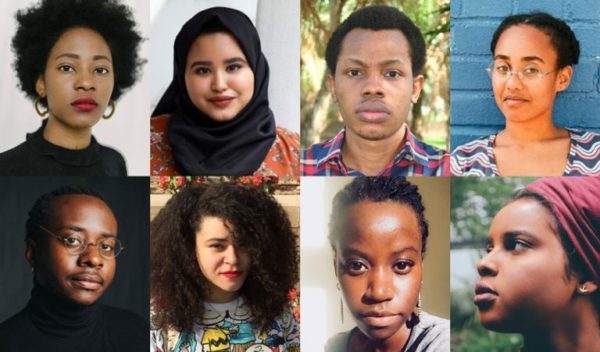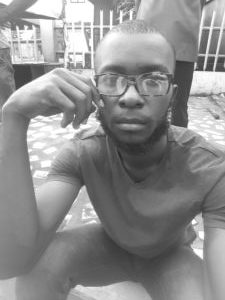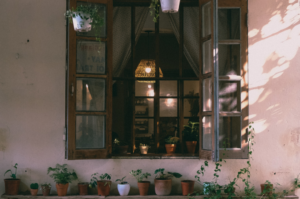
Right after the Brunel International African Poetry Prize released its 2018 shortlist, a friend walked into my Facebook inbox to express concerns. The decision of the judges had become “more political and commercialized,” he said, adding that this in itself was not bad but had become indefensible with the poor craft of most of this year’s poems. For him, the decision of the judges simply did not represent the height of quality and toughness of competition in contemporary African poetry. His case was that the general appreciation of literature—which every evaluation is based on, including the judging of prizes—should firstly be about the how, that is, the execution of the art and craft of the work, and subsequently about subject matter. His claims were strong, even if contestable.
Such dissatisfaction with prizes and prize-giving institutions is something not uncommon, so much so that even people who had once benefited from a prize have been known to turn around to decry its processes, and with valid arguments that cannot be dismissed as mere nagging or soreness or vilification. In 2017, Ocean Vuong, described by The Guardian as “a poet festooned with awards,” said this:
Competition, prizes and awards are part of a patriarchal construct that destroys love and creativity by creating and protecting a singular hierarchical commodification of quality that does not, ever, represent the myriad successful expressions of art and art making. If you must use that construct, you use it the way one uses public transport. Get on, then get off at your stop and find your people. Don’t live on the bus, and most importantly, don’t get trapped on it.
In January of 2018, after making that statement, Vuong received the TS Eliot Prize for his collection Night Sky with Exit Wounds, chosen from a shortlist of ten which had earlier come under criticism “for its lack of diversity,” with Vuong the only non-white poet on the list. Somehow, it seems that whatever one says against literary prizes turns inward and makes one complicit in the prevailing condition (which is really not the main concern here as people will always have opinion on institutions and which should not stop them from receiving benefits for their works). Despite how extreme his statement seems, Vuong was addressing a certain attitude—resident in the last movement of that statement—which, if taken to heart, would build enough maturity in any writer to have the discipline not to feel entitlement towards prizes or see them as definitive of one’s creative ability and merit.
But there is something, maybe inherent, in the decisions that lead up to the awarding of prizes that not everybody will ever be fine with. Sarah Ladipo Manyika discusses some of this in her OZY piece, “Game of Tomes: The Struggle for Literary Prizes,” as does Petina Gappah in her Brittle Paper letter, “Dear Tete Petina: I Am Not on the Caine Prize Shortlist,” and Kola Tubosun in his Enkare Review essay, “In the Shadow of Context.” But none of these pieces excuse prizes judgements that may not be supportive of quality.
To talk about the Brunel Prize in this light, a handful of factors emerge. What does the prize exist for in contemporary African poetry? The prize’s 2018 press releases for both the shortlist and the winners said that it is “aimed at the development, celebration, and promotion of poetry from Africa.”
Before the emergence of Africa Poetry Book Fund (APBF) in 2013, an initiative with which the Brunel Prize collaborates, many contemporary African poets had been unknown on the continental scene, not because they had not been writing but because there was no institution to represent or curate their works. The quality which the Brunel Prize has established in the six years it has run is evident in the poets it has brought to light, in the work that these poets have gone on to produce, the heights they attained afterwards: Warsan Shire, Safia Elhillo, Nick Makoha, Gbenga Adesina, to mention a few. It shows commitment to their creed of promoting serious poets.
While the Brunel Prize was criticized last year—on the shallow grounds of “sponsoring homosexuality,” by some obviously untalented and bitter people—the criticism this year is attention-worthy: its prioritizing of subject matter over artistic merit; and its near-total neglect of poets based on the continent. The statement made by the organizers on their choice of poets who have had access to creative writing programs outside the continent, and their assertion of the need for more creative writing opportunities for poets resident on the continent, both do not dispel sad feelings in some people. There are definitely more than a handful of poets resident on the continent who merit the shortlist, so observers expect balanced representation in terms of wherever anybody is writing from; except maybe the judges actually reached their decision based on what they received, shortlisting what they truly believe to be the best of the submissions. On a second and closer reading of the shortlist, I thought it might be the most lenient judgement the prize has ever made, which of course does not mean that there were no admirable poems on it.
Before assessing the winners’ poems, on seeing the press release for the winners and seeing that three poets had been chosen, I suspected that the judges felt an unavoidable need to compensate someone. And then I read the poems and found myself very uncomfortable with some of them, particularly poems by one of the winners. These particular poems lack inwardness and a nuanced understanding of their themes—the emotions that called them forth, so to speak—and more problems emerged from their facile execution, their mostly weak and non-inclusive resolutions, and a troubling lack of precision and clarity. What I found in these poems was a poet who is not yet very concerned about the art form, or has never known the difference between the affective person and the creative mind, or the proper handling of language beyond the colloquial into artistic rendition—something which points towards the insufficient study of poetry across generations. While it was worrisome that those poems made the shortlist, to see them win, from a shortlist of better poems, encourages the suspicion that the judges had, somehow, foregone the expectation that what they should select must be art works first and foremost.
There is no reason for the judges’ choice of three winners. I hardly agree with their explanation that they chose “the most outstanding . . . in keeping with the Prize’s project of supporting multiple voices from the African continent.” The qualities of the shortlisted poems are as close as they are distant from each other; it couldn’t have been so difficult for an experienced reader to distinguish from among them. The decision to go for three winners this year signals fatigue affected on close reading, creating an opportunity for confusion that is not needed at this point.
Someone had said, in discussing this year’s shortlist, that poetry is different for Africans from what it is for Europeans. It was a remark I couldn’t agree with, because it made disputable implications: I do not agree to any school of thought that upholds the changeability of art. It may be that different people, in different times, have had different experiences which may evolve for them emotions and materials that call forth art, but art, in itself, consists of universality—the same bewilderment, profundity, wisdom, enigma, in simple or complex forms—which can hardly be said to have changed in any time or amongst any people. This is what is meant, and what is largely misunderstood as rigidity or elitism, when some readers and critics speak about Tradition, which I strongly identify with as both a writer and a reader, and which has never afforded a kick against innovativeness but rather strengthens the maintenance of a culture of good practice in every field, against mediocrity and poor judgement. If a difference exists between African and European poetry, it may be in the appreciation and critiquing of African poetry. For the most part, Europe can speak of a luxurious and scholarly mode of reading, which, irrespective of how some people may dismiss it as an academic concern, has, over time, condensed in the European mind a particular appreciation and practice of poetry, and of art generally. I speak of a mode of reading which subsists in a theory of form, too textual in approach and almost empirical. This mode of reading does not prevail so much in the appreciation of African poetry: what we see mostly is a humanist mode of analysis and, perhaps, this conditions even the basis of African literary prizes. I cannot say whether this is a flaw, I do not really feel it is, but whatever the fact may be, let us keep a steady sight of art and its diverse poetic forms.
Prizes are significant because, in awarding the best, they offer a documentation of the activities in a given field through periods in time. The Brunel International African Poetry Prize is much more significant in this regard: it not only documents but also offers a nurturing and provisional role in contemporary African poetry. This then deprives it of the liberty of being anything less than topnotch—the Brunel Prize cannot afford leniency, not in its sixth year, not at this point when contemporary African poetry is still fledging in evolution, demanding strict care so that whatever is created now is not whisked away. Having been part of more than one process of judging prizes and selecting works for anthologies, I know that the decision of which work should go in and which should go out is a difficult task. Yet I believe that the decision of the judges of the 2018 Brunel Prize can be improved upon.
About the Writer:
 Ebenezer Agu is a poet and an essayist. He is the founding editor of 20.35 Africa: An Anthology of Contemporary Poetry and a photography enthusiast, who publishes his shots on his Instagram feed: ebenezer_agu98. He currently lives in Kano, northwest Nigeria.
Ebenezer Agu is a poet and an essayist. He is the founding editor of 20.35 Africa: An Anthology of Contemporary Poetry and a photography enthusiast, who publishes his shots on his Instagram feed: ebenezer_agu98. He currently lives in Kano, northwest Nigeria.









Otosirieze Obi-Young May 19, 2018 02:20
Hello Effiong Samuel, You might want to read this piece about how African literary prizes traditionally ignore literature about queerness: https://brittlepaper.com/2017/12/dear-paper-queer-literature-trend-africa/